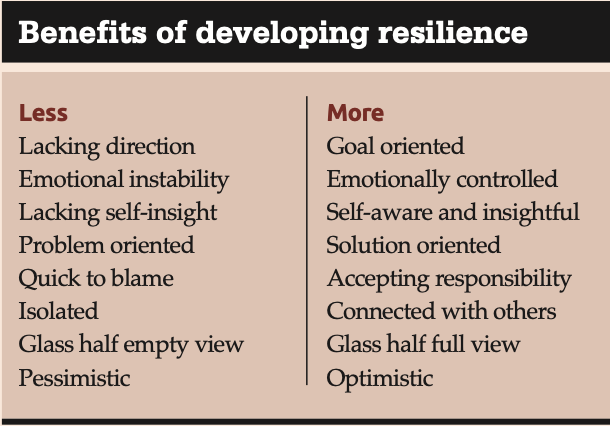American psychologist Martin Seligman says the way we explain setbacks to ourselves is also important. (He talks in terms of optimism and pessimism rather than resilience, but the effect is essentially the same.) This “explanatory style” is made up of three main elements:
- Permanence – People who are optimistic (and therefore have more resilience) see the effects of bad events as temporary rather than permanent. For instance, they might say: “My boss didn’t like the work I did on that project,” rather than: “My boss never likes my work.” This tendency to extrapolate, or to give a universal generalisation, can be damaging to personal resilience.
- Pervasiveness – Resilient people don’t let setbacks or bad events affect other unrelated areas of their lives.
- Perspective – People who have resilience don’t overact, create a drama or blame themselves when bad events occur. Instead, they keep things in perspective.

